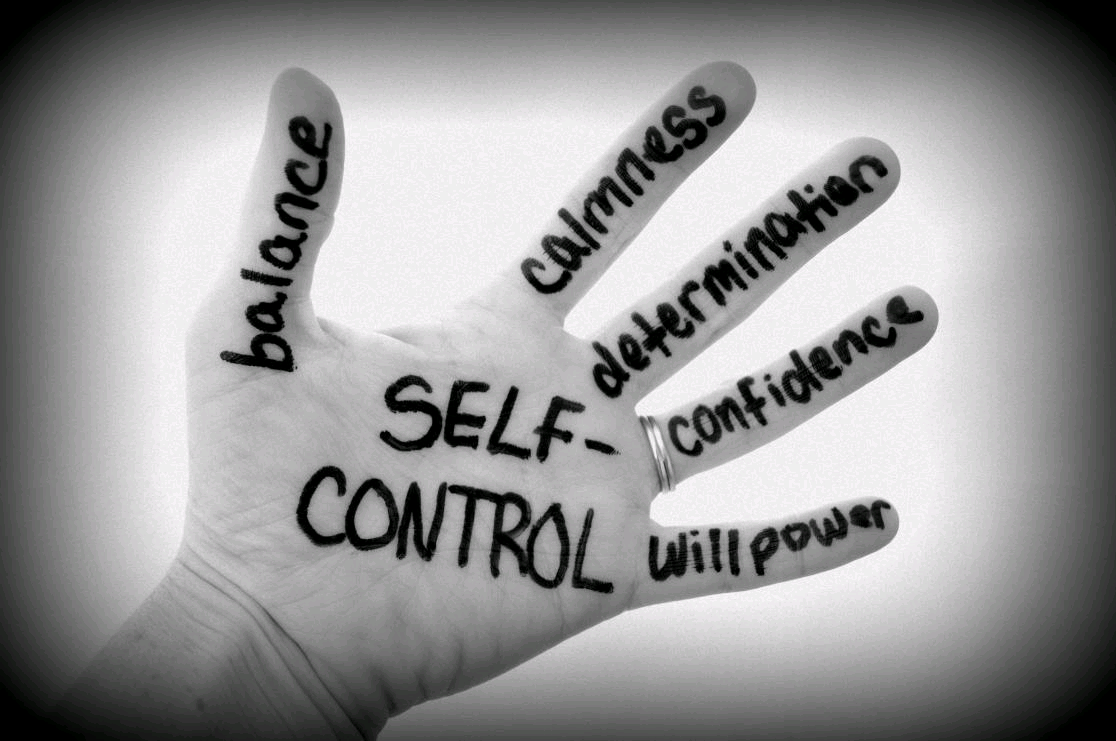Break your goals into smaller, actionable steps and set deadlines to keep yourself accountable. For example, if you’re trying to save money, decide on a specific amount you’ll set aside each month and track your progress regularly. Clear goals give you direction and make self-discipline more achievable.
2. Practice Mindfulness
Mindfulness is a powerful tool for building self-control. By staying present and aware of your thoughts, emotions, and actions, you can better understand your triggers and make conscious choices.
The next time you feel tempted to act impulsively whether it’s indulging in junk food or losing your temper, pause and take a deep breath. Ask yourself if this action aligns with your values and long-term goals. Over time, mindfulness can help you regain control over impulsive behaviours.
3. Identify and Avoid Temptations
One of the simplest ways to practice self-control is to minimise your exposure to temptations. By creating an environment that supports your goals, you can reduce the chances of slipping into bad habits.
For example, if you’re trying to eat healthier, avoid stocking your pantry with sugary snacks. If you’re working on reducing screen time, set boundaries such as limiting phone use during certain hours or installing apps that block distractions. Out of sight, out of mind often rings true when it comes to self-control.
4. Build Healthy Habits
Self-control becomes easier when you develop positive habits that support your goals. Habits automate decision-making, reducing the need for constant willpower.
Start small by focusing on one habit at a time. For instance, if your goal is to stay active, commit to a 10-minute walk each day. As the habit becomes ingrained, you can gradually increase the intensity or duration. Consistency is key to making self-control a natural part of your routine.
5. Strengthen Your Willpower
Willpower is like a muscle, the more you exercise it, the stronger it gets. Challenge yourself with small acts of self-discipline to build your mental resilience.

Try delaying gratification, such as waiting an extra 10 minutes before eating a treat or resisting the urge to check your phone during a meeting. These small victories add up, making it easier to tackle bigger challenges over time.
6. Develop a Strong “Why”
Understanding your motivation is crucial for maintaining self-control. When you have a compelling reason behind your actions, you’re more likely to stay committed to your goals.
Take some time to reflect on why your goals matter to you. Write down your “why” and keep it somewhere visible as a constant reminder.
Whether it’s improving your health, securing a better future, or setting an example for your loved ones, a strong sense of purpose will keep you grounded and focused.
7. Forgive Yourself and Learn from Slip-Ups
No one is perfect, and even the most disciplined individuals have moments of weakness. Instead of beating yourself up over mistakes, use them as opportunities to learn and grow.
Analyse what went wrong and identify strategies to avoid similar situations in the future. Self-compassion is essential for building resilience and staying motivated on your journey to better self-control. Remember, progress is more important than perfection.
Mastering self-control is a journey that requires patience, practice, and perseverance.
By setting clear goals, practicing mindfulness, avoiding temptations, building healthy habits, strengthening your willpower, finding your “why,” and embracing slip-ups as learning experiences, you can develop the discipline needed to navigate life’s challenges.
Self-control isn’t just about saying no, it’s about saying yes to the life you truly want. Take these tips to heart, and watch as your ability to manage yourself transforms your relationships, career, and personal growth.
![]()

